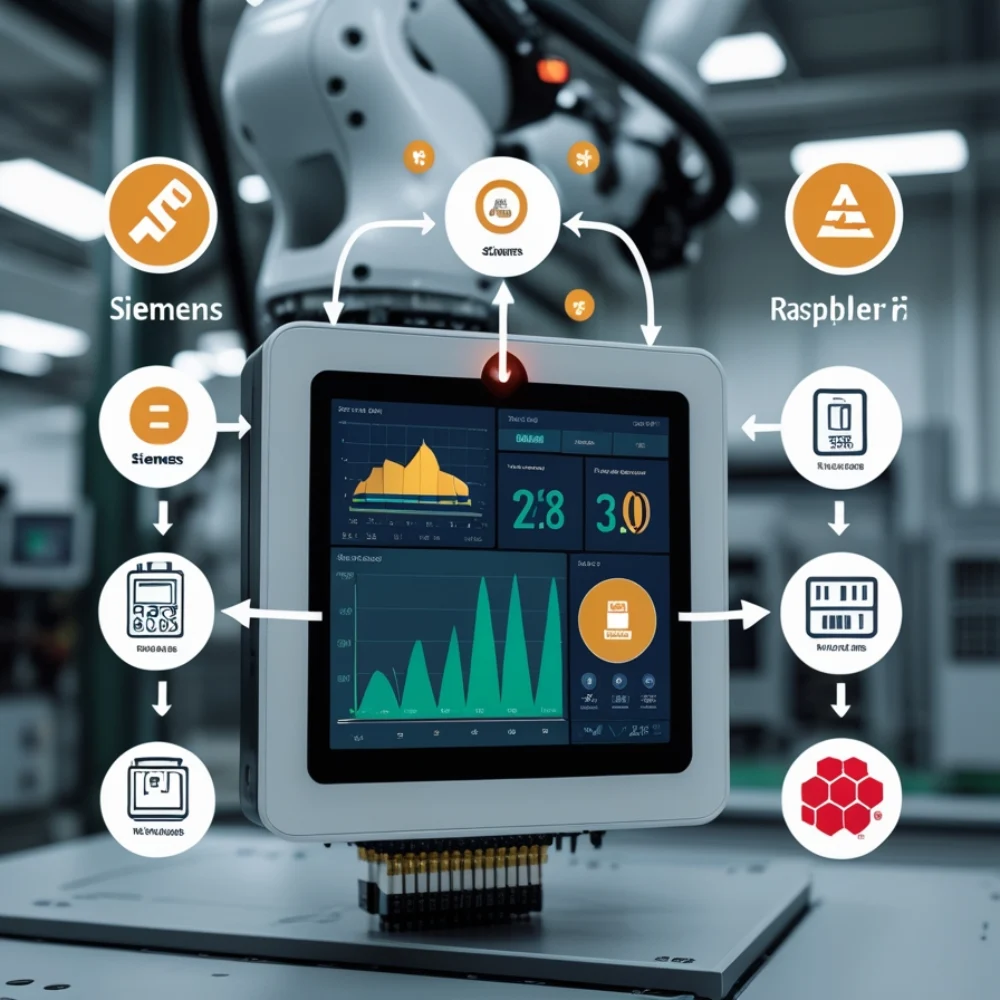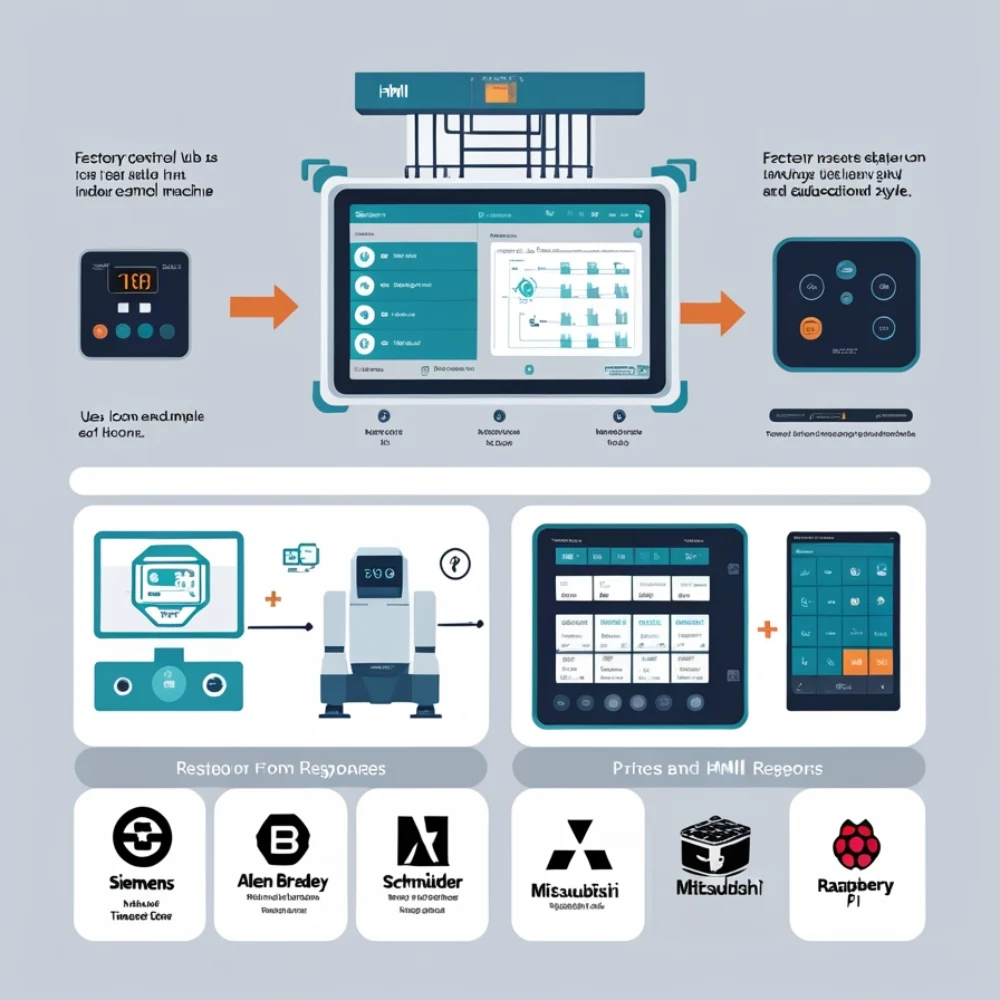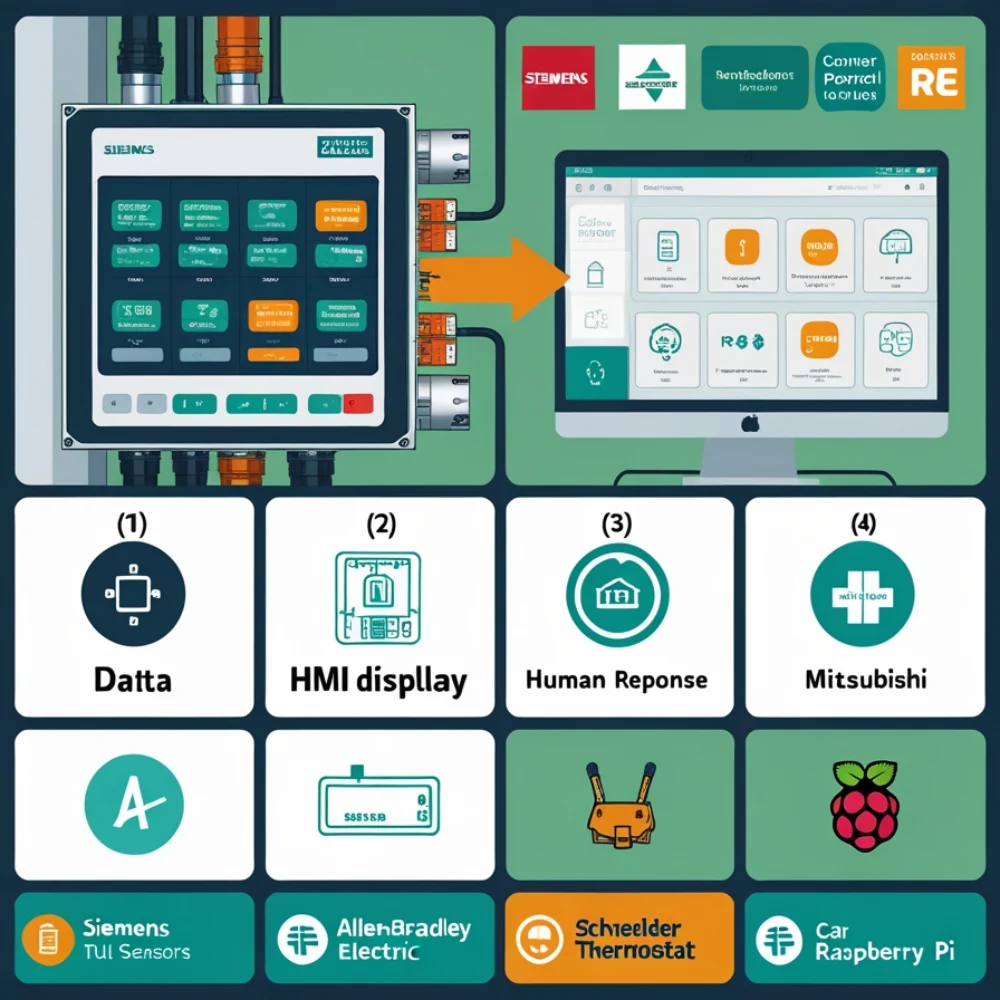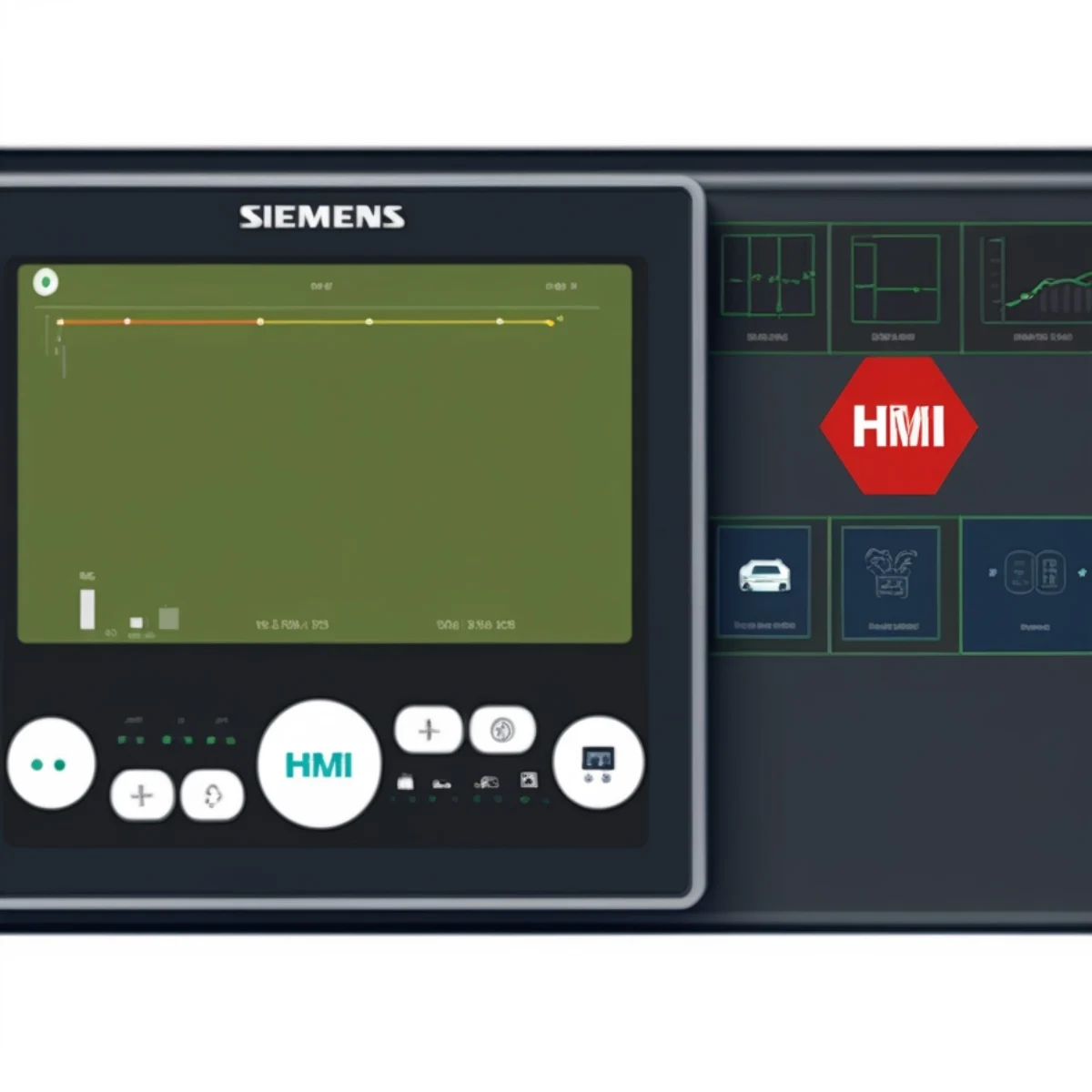Why HMI Modules Matter
Imagine replacing your home thermostat, debugging a factory robot, or monitoring a hospital ventilator—all from one easy-to-use, convenient screen. That’s the magic of an HMI Module! These small devices are the behind-the-scenes heroes of automation, bringing humans and machines together.
As an engineer, a hobbyist, or just tech-curious, this book describes HMI Modules in simple English. No technical mumbo-jumbo, no fluff—just practical information!
What Is an HMI Module?
An HMI Module (Human-Machine Interface Module) is a piece of hardware that allows you to communicate with machines.
It’s like a “control center” integrated directly into equipment, offering:
- Real-time data (pressure, speed, temperature).
- Touch/button controls for adjustment settings.
- Alerts for issues like overheating or errors.

HMI Module vs. HMI Panel:
| Feature | HMI Module | HMI Panel |
| Size | Compact, built into machines | Larger, standalone display |
| Cost | Budget-friendly (starts at $200) | Pricier (up to $10,000) |
| Flexibility | Customizable for specific tasks | General-purpose use |
Example: Your car’s infotainment system is an HMI Module; a factory’s wall-mounted control panel is an HMI Panel.
Want to know more about How “HMI System work“
How Does an HMI Module Work? (In 4 Steps)
- Sensors Gather Data: Machines share info like “I’m running at 75% speed!”
- Module Processes Data: Organizes it into charts, numbers, or alerts.
- You Take Action: Tap the screen or press buttons to adjust settings.
- Machine Responds: Commands like “Slow down” are sent instantly.

Key Features:
- Touchscreen (like your smartphone, but tougher).
- Connectivity (Wi-Fi, Ethernet, USB).
- Software Compatibility (works with PLCs, SCADA).
Where Are HMI Modules Used?
- 🏭 Factories: Control conveyor belts or robotic arms.
- 🏥 Healthcare: Monitor ventilators or MRI machines.
- 🏡 Smart Homes: Adjust thermostats or security systems.
- 🚗 Automotive: Manage assembly line robots.
Real-World Example: A bakery uses an HMI Module to automate oven temperatures, ensuring perfect cookies every time!
Top 5 HMI Module Brands (2024)
| Brand | Best For | Price (Approx) | Pros | Cons |
| Siemens | Heavy industry | 500–3,000 | Durable, integrates with SCADA | Complex setup |
| Allen-Bradley | Manufacturing | 800–5,000 | User-friendly, IoT-ready | Expensive |
| Schneider Electric | Energy systems | 300–2,500 | Affordable, reliable | Limited features |
| Mitsubishi | High-speed tasks | 600–4,000 | Precision control | Steep learning curve |
| Raspberry Pi | DIY projects | 50–200 | Customizable, budget-friendly | Requires coding skills |
How to Choose the Right HMI Module
- Screen Size: 4–7” for small machines, 10”+ for complex tasks.
- Touch vs. Buttons: Touchscreens are intuitive; buttons work in gritty environments.
- Connectivity: Wi-Fi for remote access, Ethernet for stable factory use.
- Durability: IP65 rating (dust/water-resistant) for harsh conditions.
- Budget: Start small (200) for home projects; invest more(200) for home projects; invest more(3,000+) for factories.

Pro Tip: For DIYers, Raspberry Pi + free software like Node-RED = a $100 HMI Module!
Common Issues & Fixes
- Unresponsive Touchscreen:
- Cause: Dirt or scratches.
- Fix: Clean with a microfiber cloth; recalibrate.
- Connectivity Drops:
- Cause: Loose cables or Wi-Fi interference.
- Fix: Check connections; switch to Ethernet.
- Software Crashes:
- Cause: Outdated firmware.
- Fix: Update software; reboot the module.
FAQs: Your HMI Questions, Answered
No. The PLC (Programmable Logic Controller) processes data; the HMI Module is just the “face” you interact with.
Yes—if you:
Use strong passwords.
Enable firewalls.
Update software regularly.
5–10 years with proper care. Avoid extreme heat or moisture!
Absolutely! Grab a Raspberry Pi, a touchscreen, and free tools like Ignition SCADA.
Ready to Dive In?
HMI Modules aren’t just for big factories—they’re for anyone who loves smart, efficient control. Whether you’re automating a plant or tweaking your home brewery, the right module saves time and cuts errors.
Want to know more about HMI or PLC? Check Here
Got questions? Ask below—we’re here to help!


1 thought on “HMI Modules Explained: How They Work & Which One is Right for You”